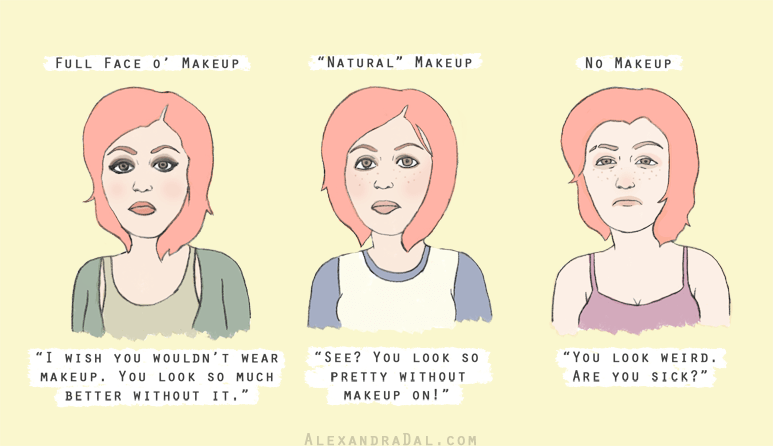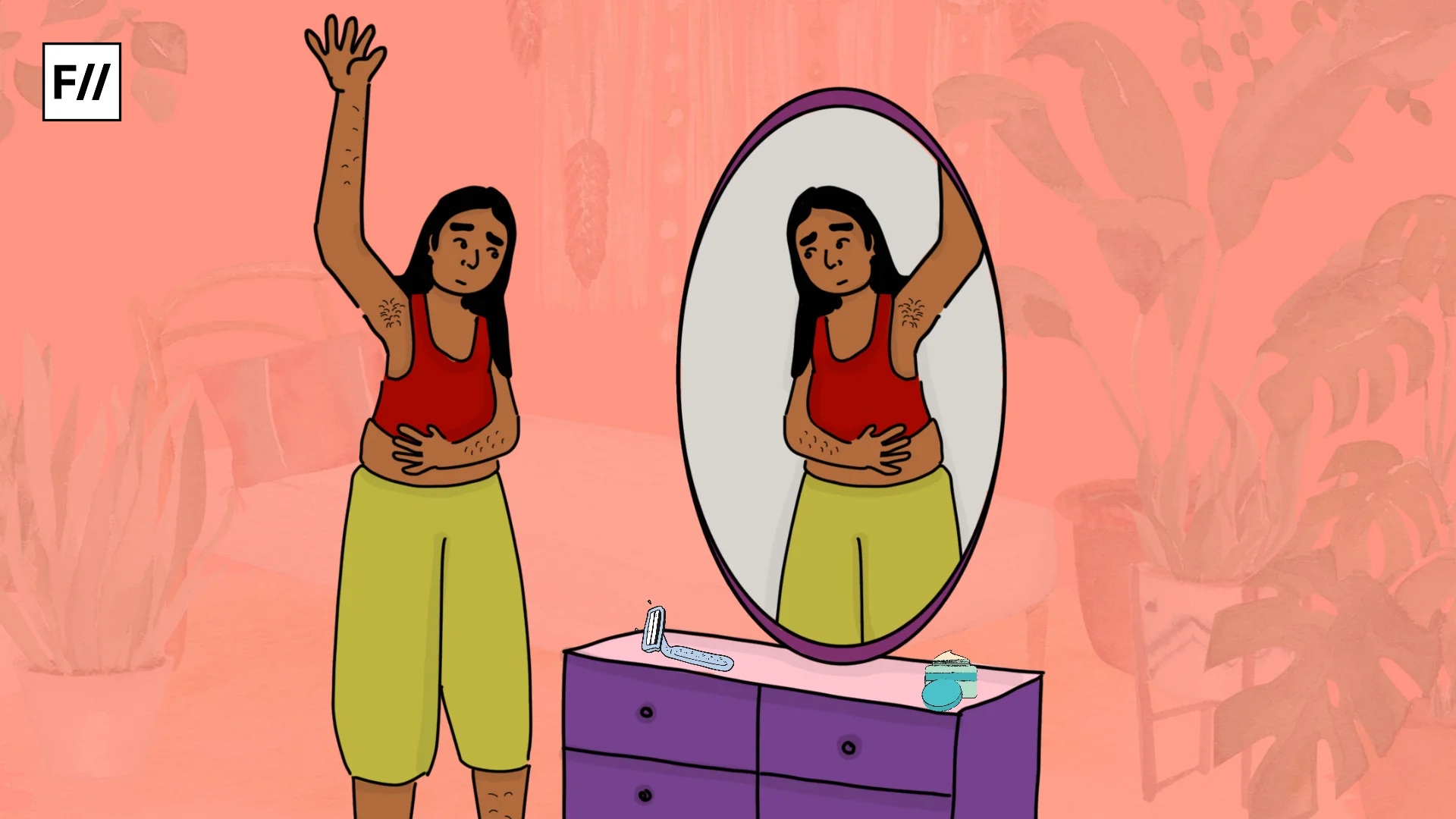Being teased for wearing “too much” or absolutely no makeup is something that is familiar to many women. I am sure a lot of us remember the pathetic “dented-painted” comment made by our former president’s son Mr. Abhijeet Mukherjee about women protesting against the horrific gang-rape of a young female student in New Delhi back in 2012. He shamed women protesters for wearing makeup, and this had rightly sparked a backlash from women and the media.
Makeup shaming is something that happens both when women wear makeup; and when they do not. The underlying ideas are somewhat complicated. Women who go around with a makeup-less face are shamed because such a face is not considered beautiful or appealing. On the other hand, those who apply makeup are shamed for “not being natural” or trying to live up to a standard of beauty.
Also Read: The Old-New Brand Of ‘Natural Beauty’ – Just As Hypocritical As The Makeup Industry!
Gender and grooming practices have a strong relationship as the latter is often considered to be a reflection of the former. That is what makes makeup shaming an important part of the discourse around gender, sexuality and beauty standards.
Makeup shaming is an issue which has found its way into law as well. An example is the American case of Jesperson v Harrah’s Operating Company (2006). Here the services of the plaintiff, a female bartender, were terminated because she refused to abide by the dress & grooming code of the defendant employer which required female employees to wear large amounts of makeup; while men were not permitted to wear any makeup at all. The main contention of the plaintiff was that the makeup rule, “took away [her] credibility as an individual and as a person.” This was because it offended her sense of self; she was made to maintain an appearance which she believed inconsistent with her self-perception.
However, the court refused to rule in favour of the plaintiff on the grounds that subjective dissatisfaction with the rule was not good enough to strike it; and that it did not put an unequal burden on women as compared to men. Indeed there are many similar cases out there, a common one being that of air hostesses, where women’s grooming practices are controlled because they signify something.
Gender and grooming practices have a strong relationship as the latter is often considered to be a reflection of the former.
Feminists have objected to the norms of appearance which require or rather force women to conform to certain standards in order to be accepted. One of them is having to wear makeup because it makes one look flawless, which is considered beautiful and ideal. While the objection is valid, it often extends to the point where not wearing makeup becomes equated with a rejection of imposed beauty standards. This leads to the targeting and shaming of those women who wear makeup, because it is believed that they are trapped in a dictated conception of beauty.
Makeup shaming privileges natural beauty and makes those who wear makeup feel guilty for relying upon it to overcome feelings of apparent insecurity. The opposition to makeup shaming is that women wear makeup because they like it; or because its fun; and also because it makes them feel confident about themselves. It stresses that men and women alike must have the freedom to decide what to do with their faces.
People should get to choose what makes them feel good about themselves – which can be both a natural face or a made-up one. The real problem with makeup shaming is that dictates something which should entirely be a personal choice. Those who debunk beauty standards should speak for personal autonomy over one’s body and not replace one rule with another.
Featured Image Credit: Alexandra Dal
About the author(s)
Madhulka is a third-year law student. Her areas of interest include laws relating to women, human rights and history. She likes to watch Marvel movies and period cinema in her free time.




